Description
ABSTRACT
The Delimitation of Party Autonomy in National and International Arbitration
Peace Omotayo Adeleye*
The concept of party autonomy is the heartbeat of arbitration. This article examines the doctrine of party autonomy in national and international arbitration by analysing the provisions of many international conventions and the provisions of some national legislation. In the determination of the scope of the application of party autonomy, the article also answers the question on whether party autonomy in national and international arbitration is one without limitations.
Keywords: Party autonomy, International Arbitration, National Legislation, International Convention.
INTRODUCTION
The arbitrator’s obligations include the duty generally to conduct the arbitration in accordance with the procedures set forth in the parties’ arbitration agreement (unless contrary to applicable mandatory law).1 Dispute is a thread interwoven into the fabric of the human society. This has however not, inhibited humans from devising, adopting or searching for mechanisms for the resolution of these disputes. The product of these searches has been a multiplication of supposed effective dispute resolution mechanisms. Foremost of these mechanisms for analysis is litigation.2 The nature of human to have their disputes settled by an independent third party made litigation a solace for disputants. However, despite the perceived effectiveness of litigation, it flaws were not unnoticeable.
It is a common cliché that friends never return as such after they go to court. This cliché is apt in describing the strain and hostility that plagues the relationship of parties inter se after an ensuing litigation.3 Apart from this, the cost effectiveness remains an issue of scholastic discourse. Even though it may be impossible to quantitatively analyse the jurisdictional discrepancies in cost, it is widely accepted that litigation is quite expensive. Commercial necessities such as the need for skilled judges to decide over disputes of specialised nature, the need to cloth certain commercial dealings with privacy and confidentiality were all indices of the need for a better and effective dispute resolution mechanism. Owing to these perceived deficiencies in litigation, and the sophistication that has clothed many commercial transactions today, it is no surprise that arbitration was explored. Arbitration has been defined by varying persons based on personal idiosyncrasies.4
*LL. B (First Class Honours), BL. Associate at Kenna Partners, Lagos Nigeria.
- Gray B Born, International Commercial Arbitration (Kluwer Law International, 2009) 1629.
- The use of the word, ‘foremost’ does not in any way connote a chronological exposition of the development of dispute resolution mechanisms. This is owing to the fact there have been arguments or submissions by legal scholars that arbitration and other alternative dispute resolution mechanisms precede litigation as dispute resolution mechanisms. Even though this author is inclined to agree with the arguments and submissions, for the purpose of this work, there would be no descent into such arguments/submissions.
- See generally, Andrew Goodman, Effective Mediation Advocacy: A Guide for Practitioners (3rd edition, Tarquin Publishers 2016).
- See generally, Jan Paulsson, The Idea of Arbitration (Oxford University Press, 2013) 30;

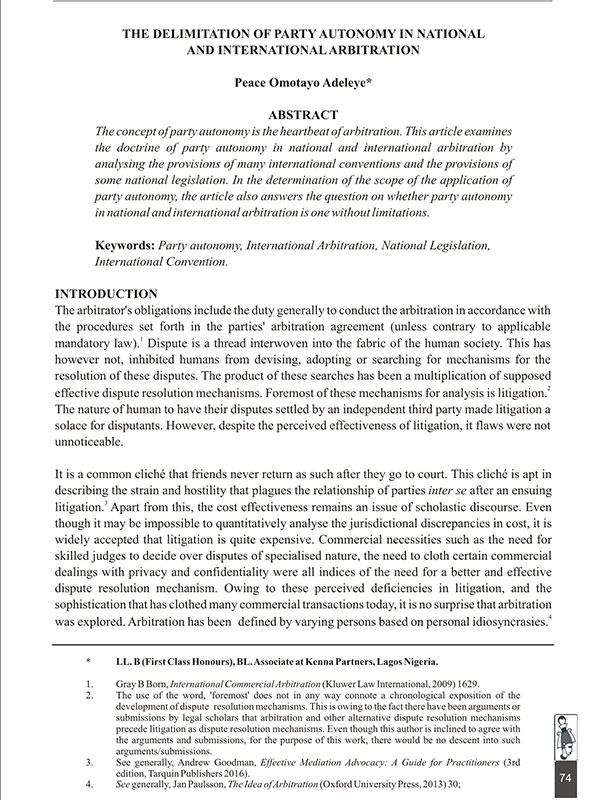
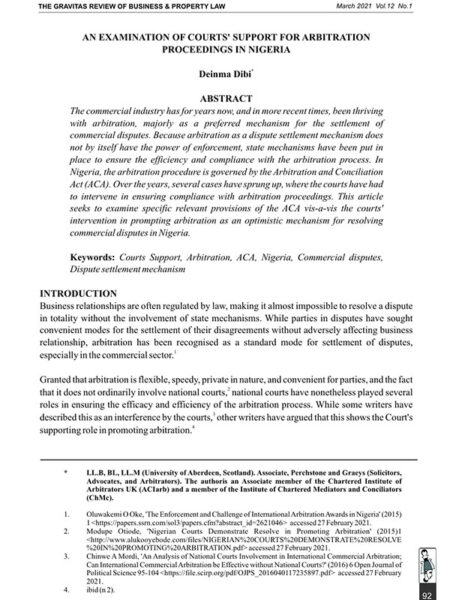
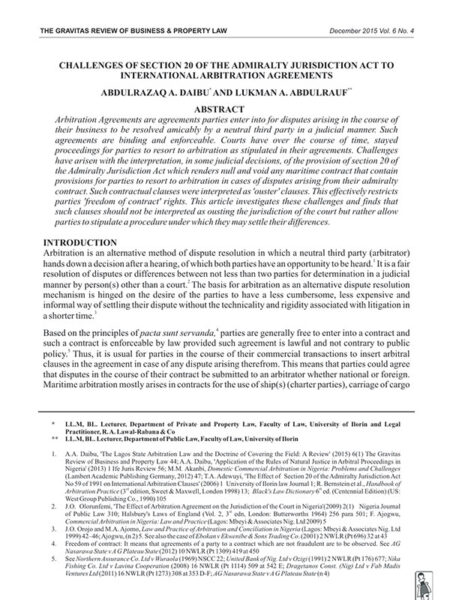
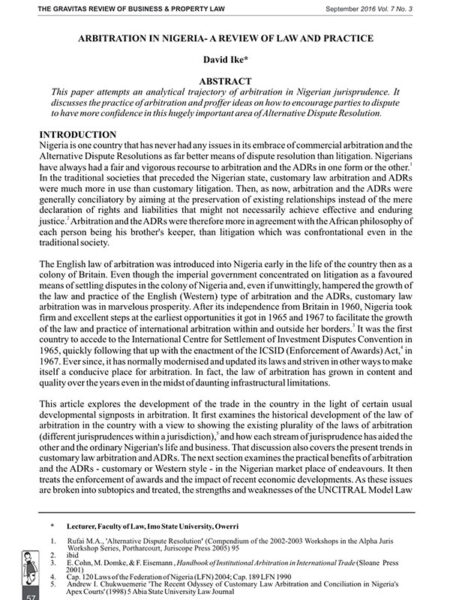
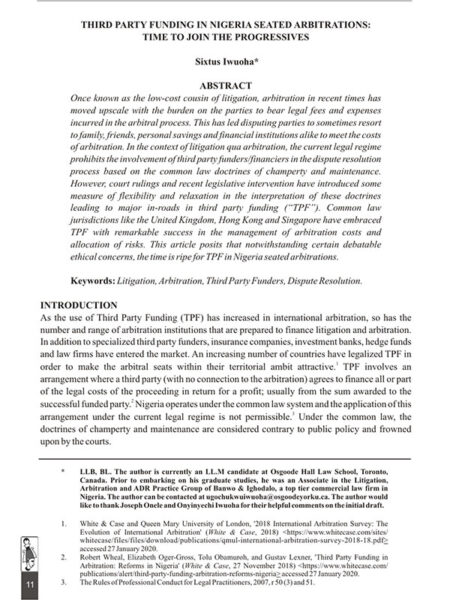


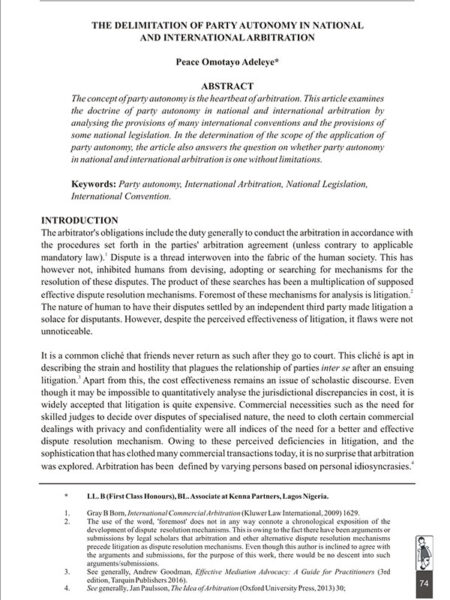
Reviews
There are no reviews yet.